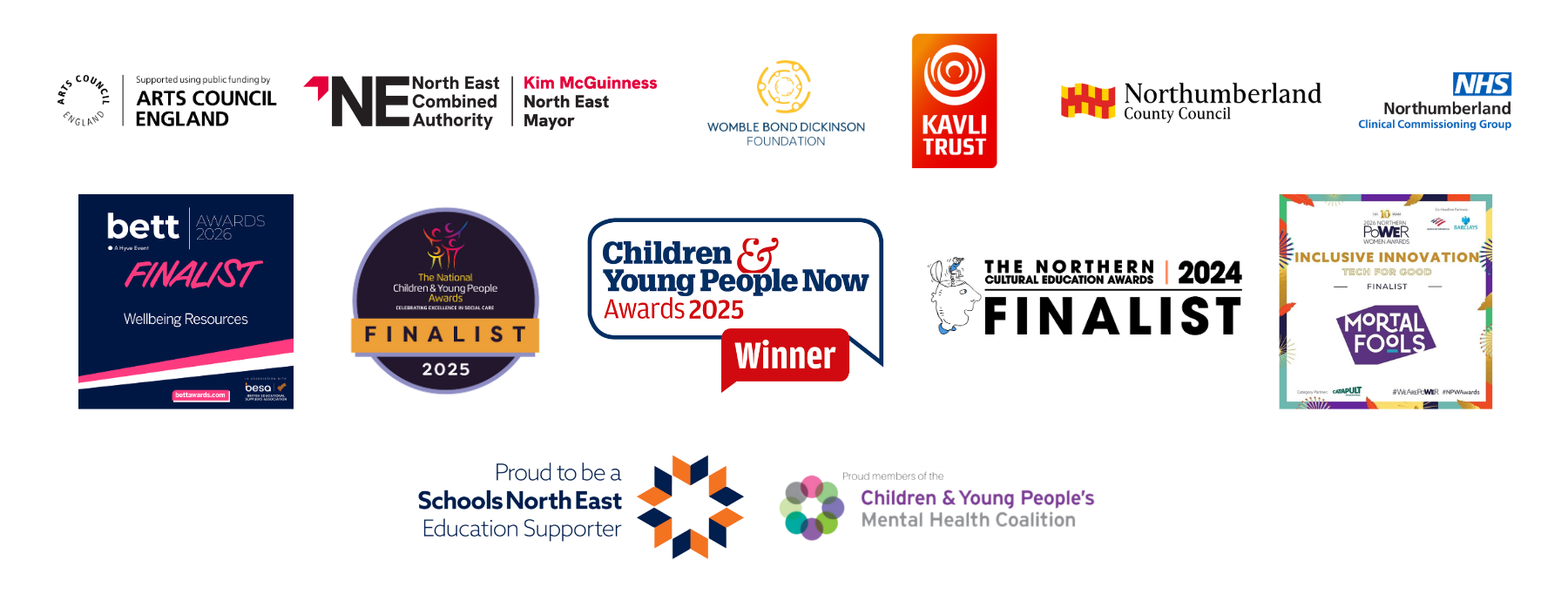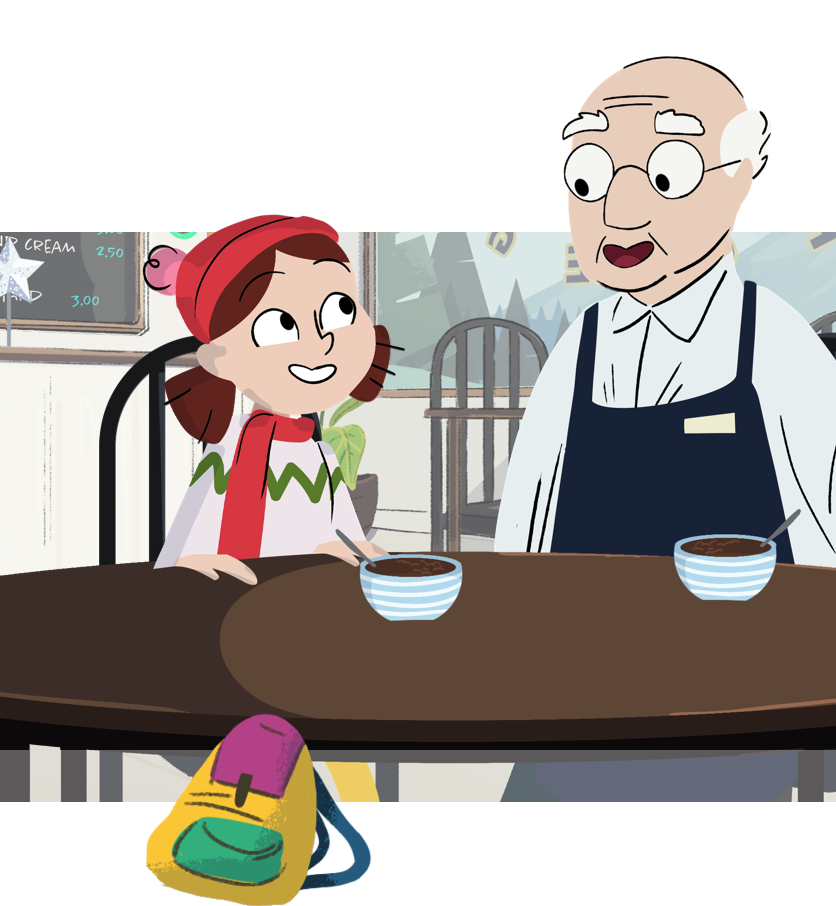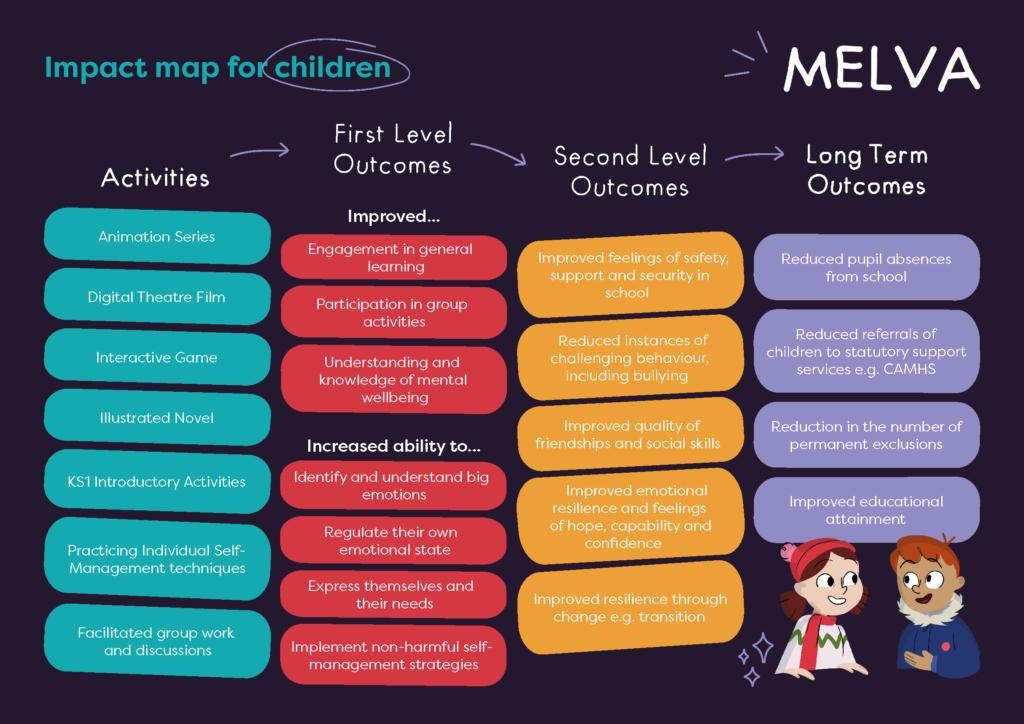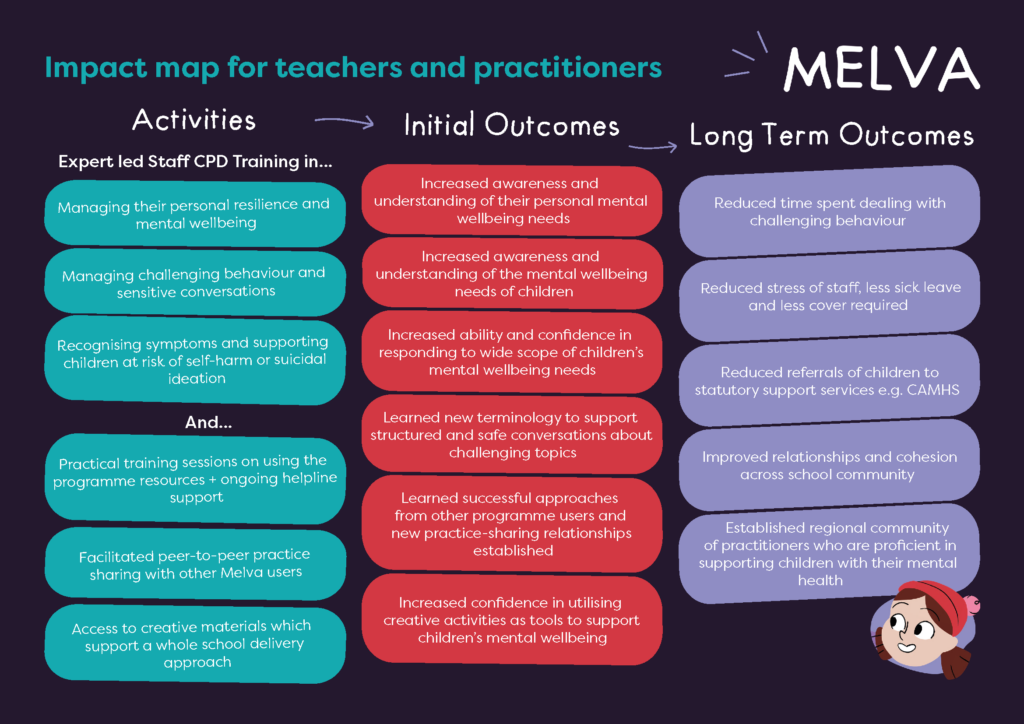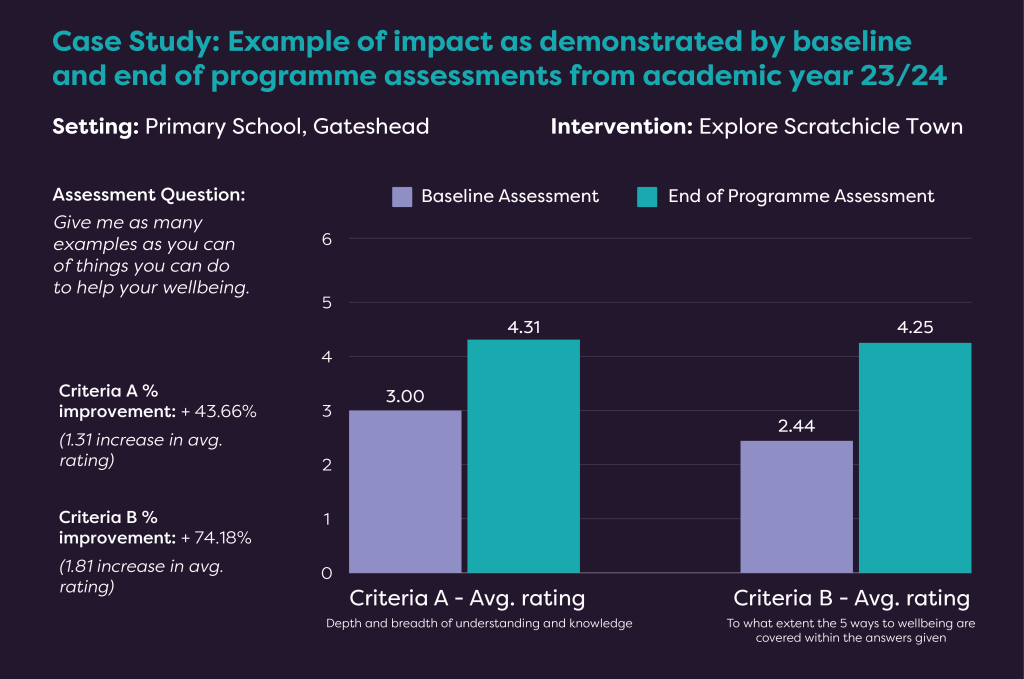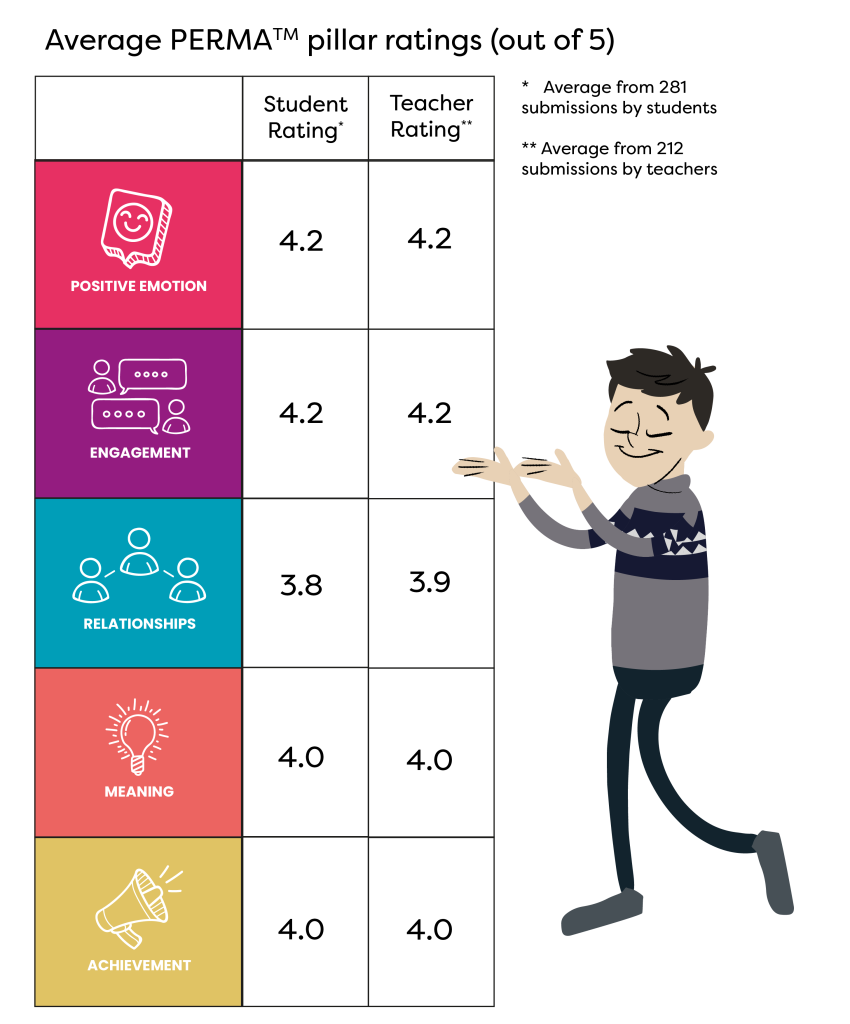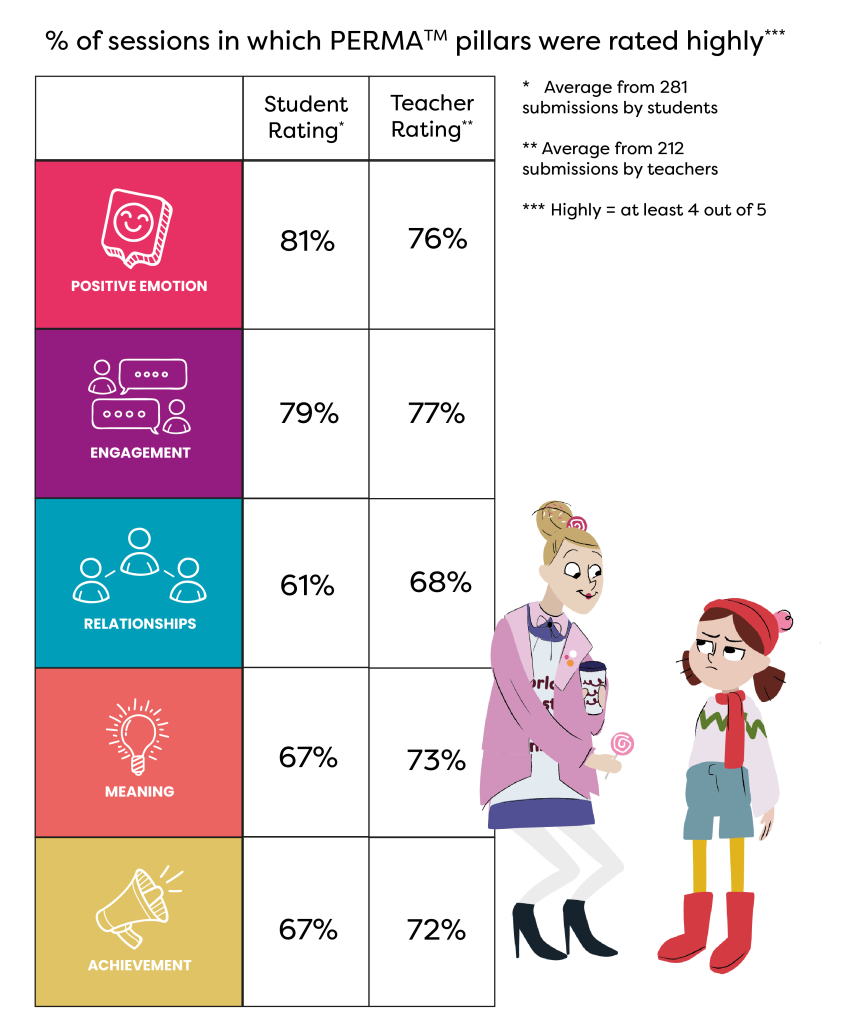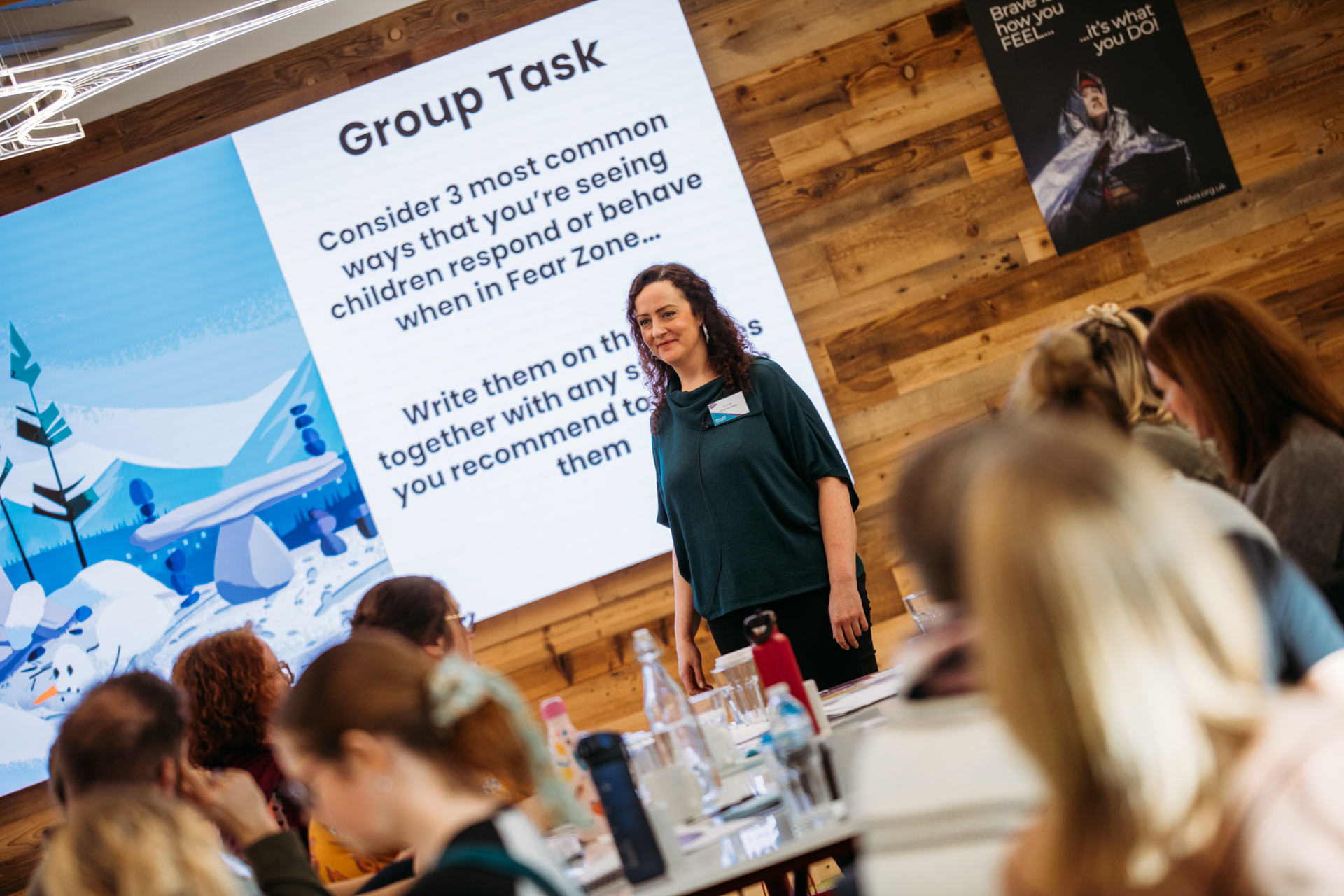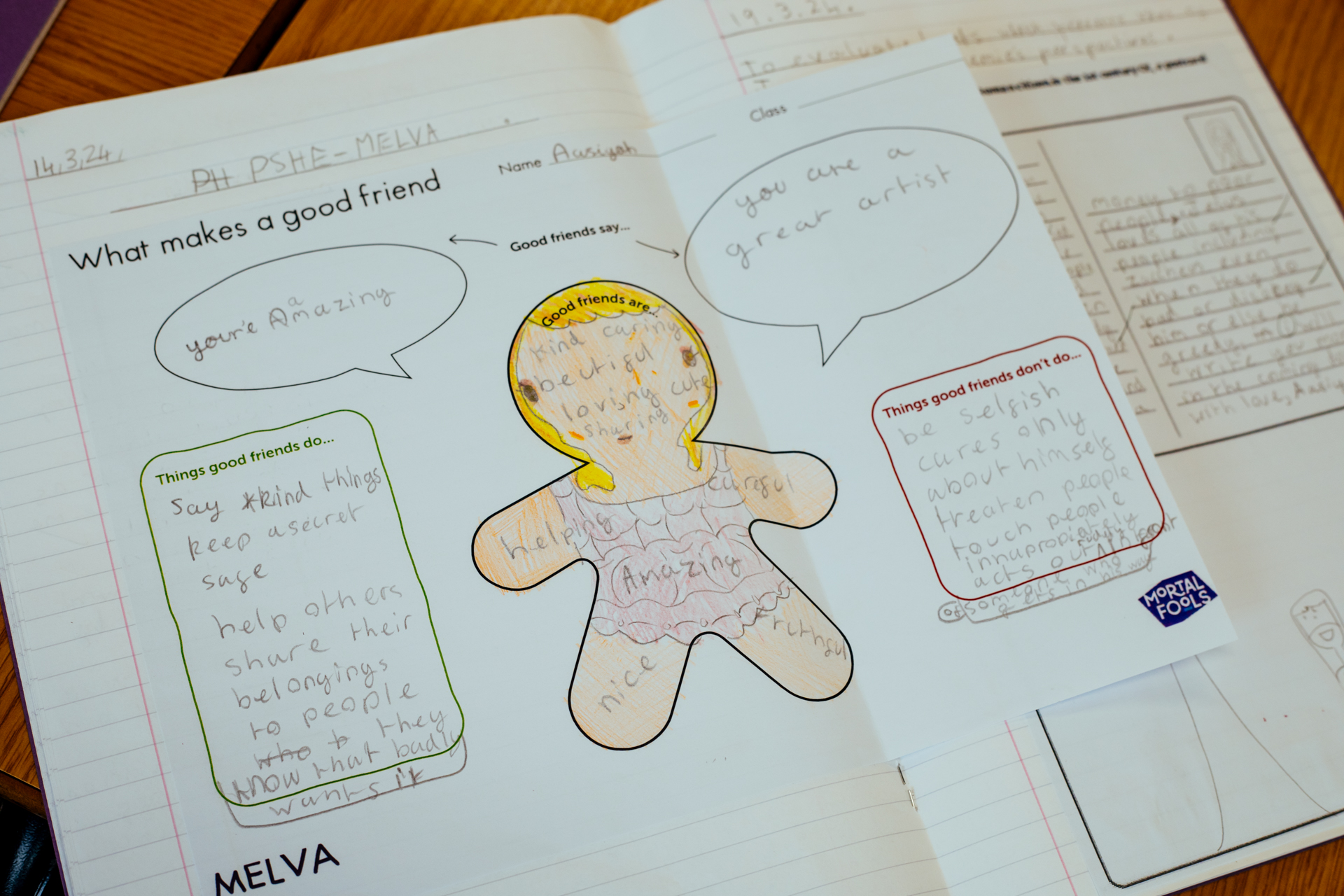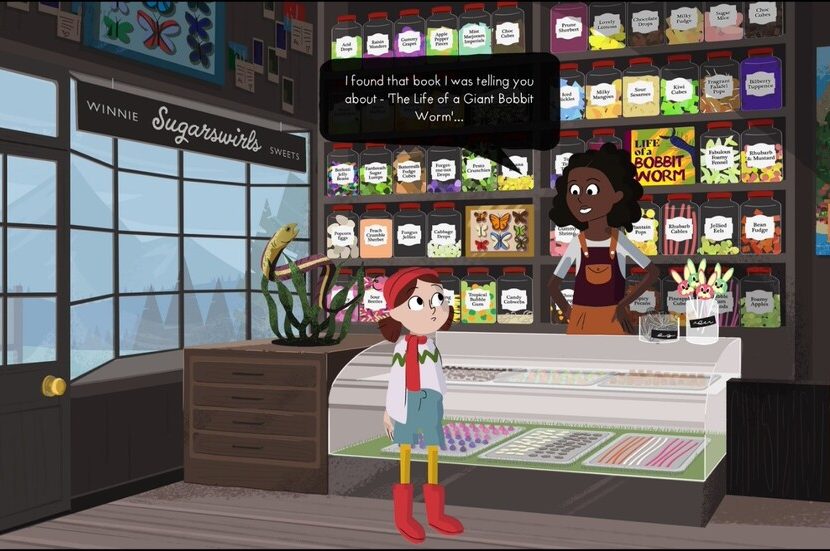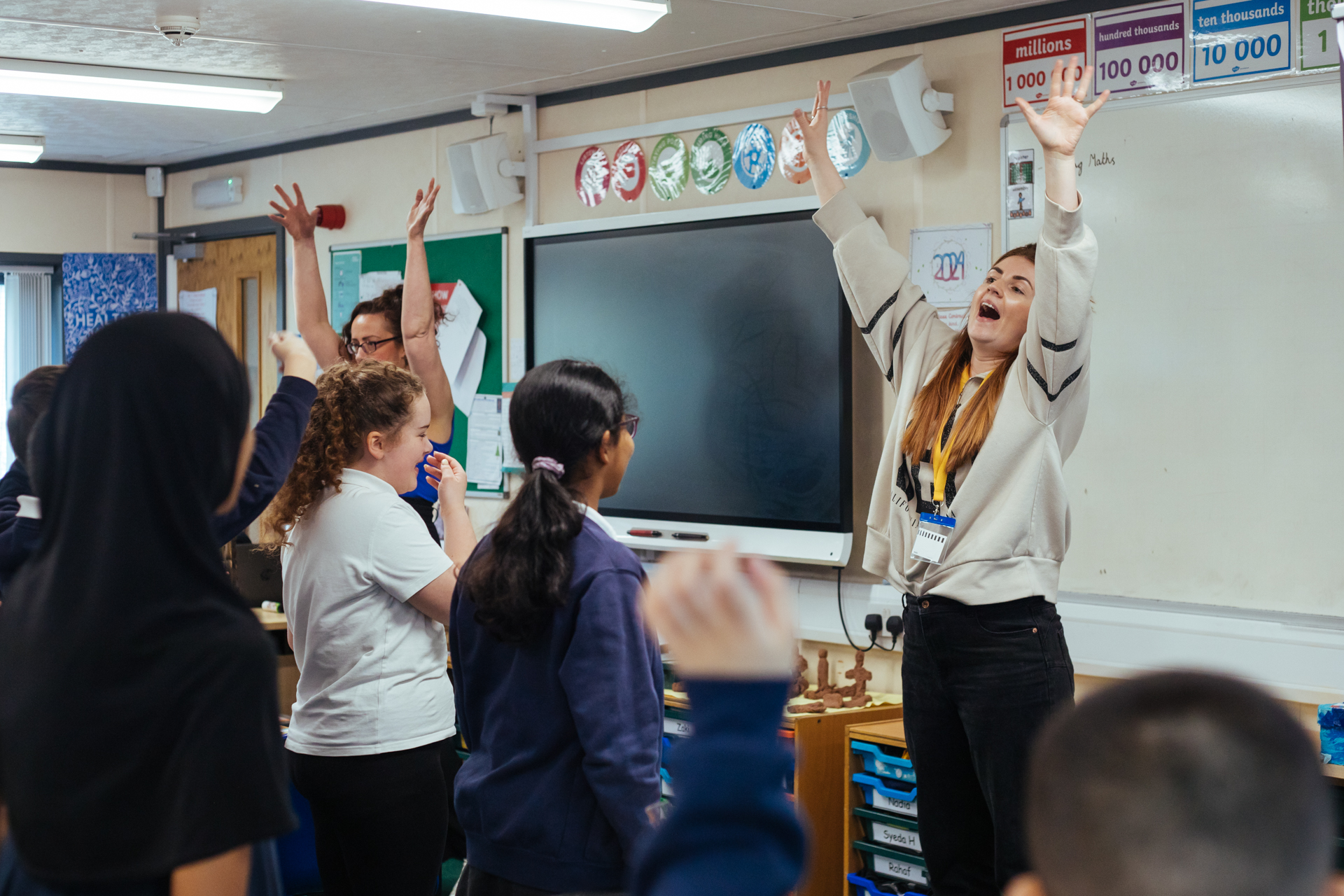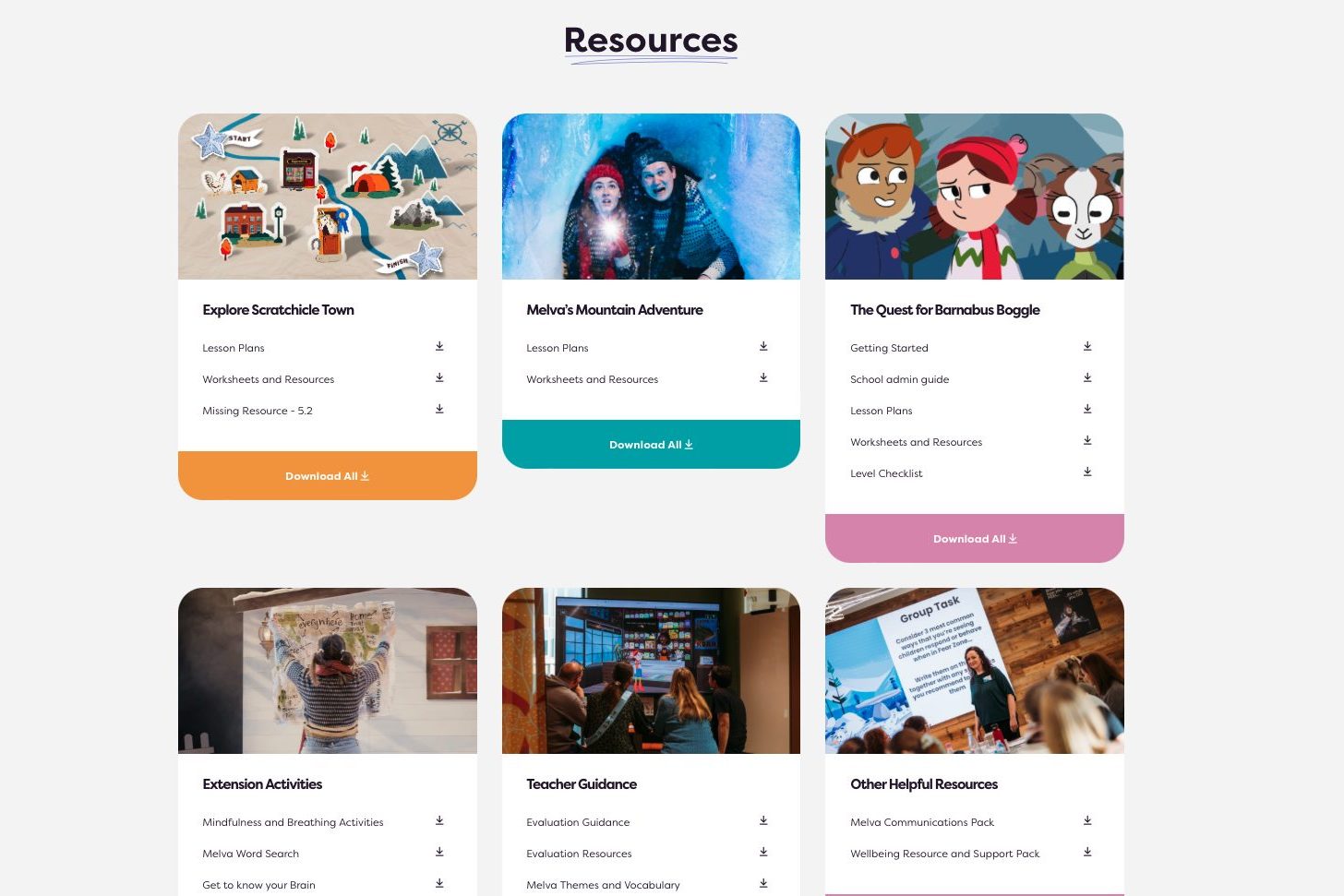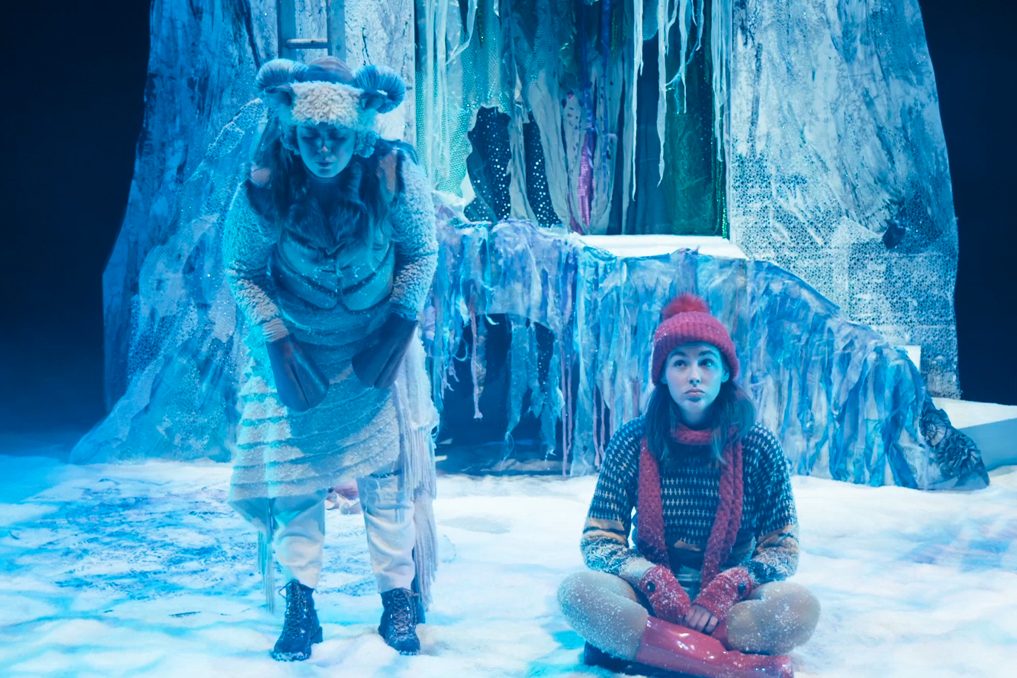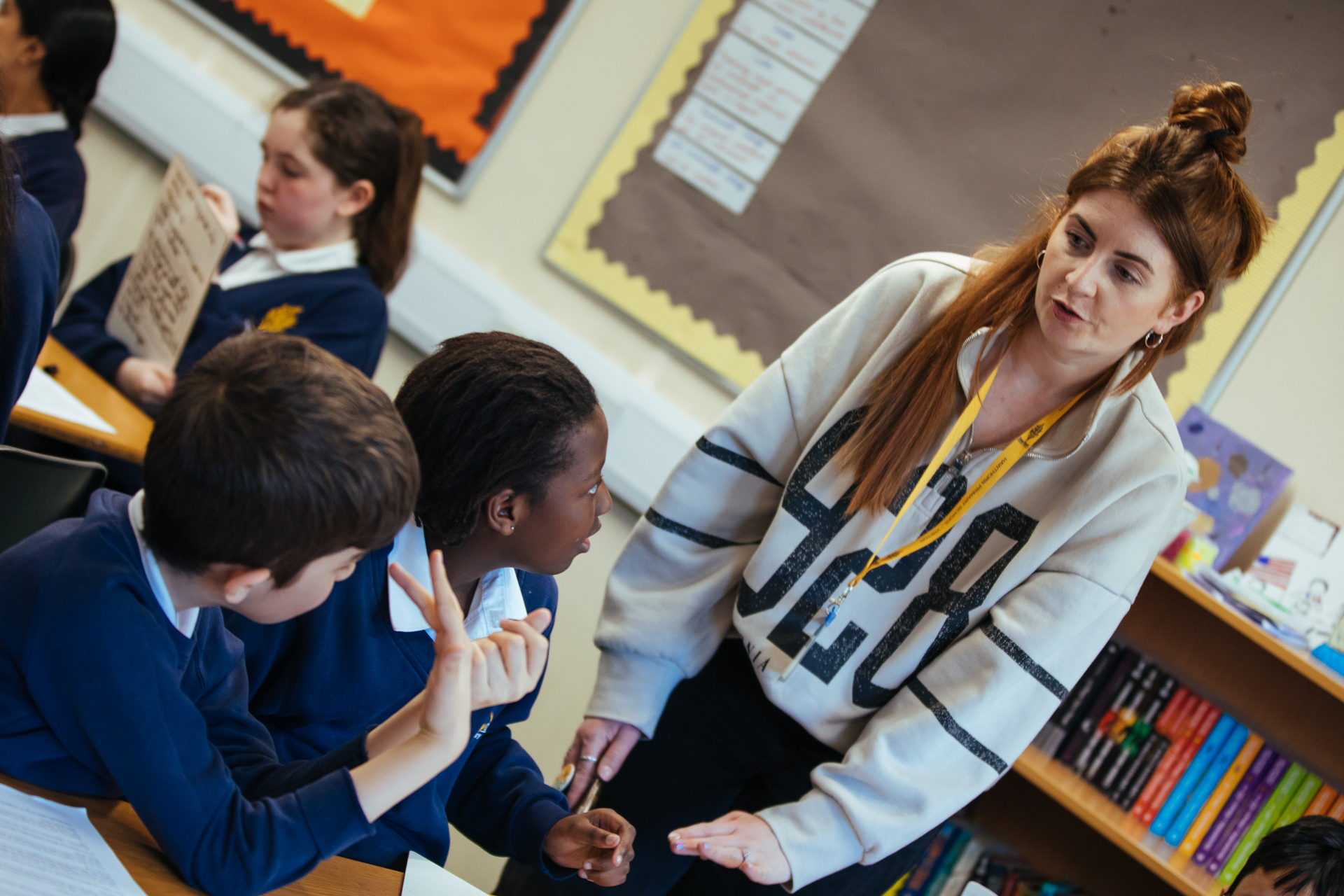
Register your interest today
It's not too late to sign up to MELVA this academic year and your school might be eligible for a free licence! Click below to register your interest in a MELVA licence.
Register interestMELVA’s impact for
children and adults
MELVA is facilitated through creative and practical activities, with an emphasis on learning by doing.
The resources and evaluation tools are rooted in ratified and recognised wellbeing research, such as the PERMATM framework and the NHS 5 steps to wellbeing.
The Melva Package
In the Melva programme, children go on a shared journey with Melva Mapletree, as she learns how to recognise, understand and manage her worrits.
By learning through Melva’s adventure – and the characters she meets along the way – children are given a vehicle to talk about, explore and learn openly about mental wellbeing, in a way that is accessible, non-exposing and practical.
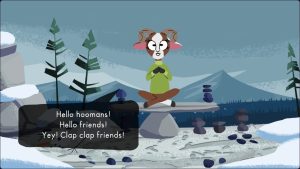
NEW: Introducing Melva
This new area provides a collection of simple, standalone activities featuring characters, themes and settings from the MELVA world, suitable for Key Stage 1 and designed to help develop early stages of emotional literacy.
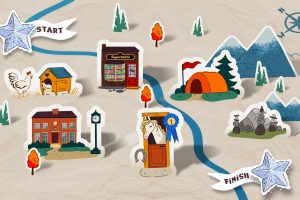
Explore Scratchicle Town
This programme is designed to give young people in Key Stage 2 a basic introduction to the NHS 5 ways to wellbeing.
Learning is facilitated through short animations featuring different characters who live in Melva’s home town – Scratchicle Town – each representing different elements of the 5 key steps, followed by practical group and individual activities.
More info
Melva's Mountain Adventure
Delve deeper into the topics of worries, anxiety, and self-management techniques through this digital theatre show.
In role as Mountain Rescue Trainees, children meet Melva Mapletree and help her on her adventure to overcome her worrits and find her Grandpa. The story is split into 5 chapters and spread across 8 lessons with wraparound activities which help children discuss what they’ve watched, apply it to their own lives, and learn techniques for self-management of their own worrits.
More info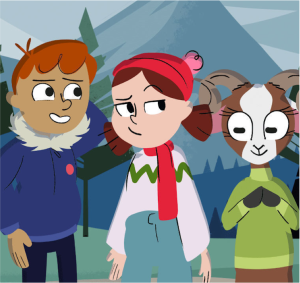
The Quest for Barnabas Boggle
In this choose-your-own-adventure style game, children take on the role of Melva’s ‘Niggling Voice’, tasked with making the right choices to help find her missing best friend, Barnabas.
The game follows on from the Melva’s Mountain Adventure story, with the emphasis shifting to exploring relationships and supporting others, whilst still looking out for yourself.
More info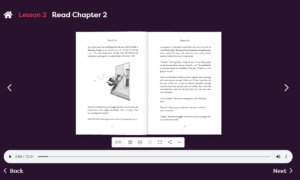
NEW: Melva Mapletree and the Great Undoing
Combining RSE/PSHE with literacy, comprehension and oracy, this new illustrated novel and accompanying activities support older children through key life transitions, exploring themes of friendship, grief, puberty, and emotional wellbeing with humour and sensitivity.
This programme also touches on the mental health topics of self-harming behaviours and suicidal ideation, and comes with practical support for teachers to sensitively and confidently address these subjects.
More info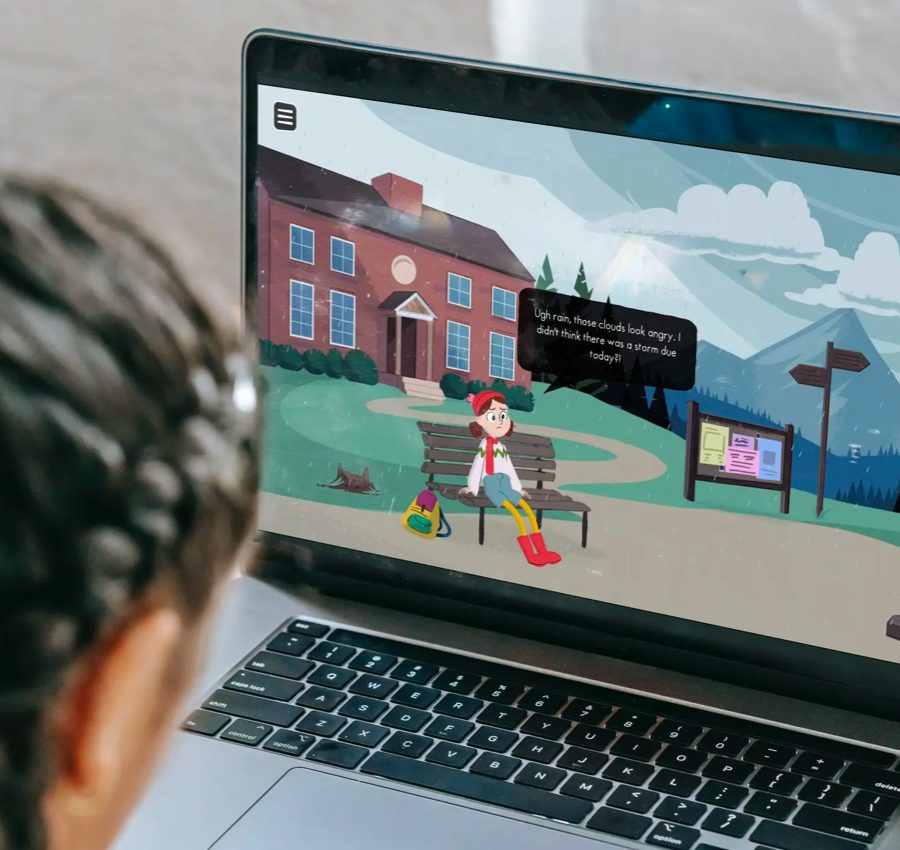
Not just fun and games…
Melva is fun, creative, and incredibly engaging but, most importantly, it is rooted in legitimate mental health research and it’s proven to work.
The themes explored directly link to the current relationships, sex and health education (RSHE) curriculum, and the programme tackles real-life issues in a fun and accessible way.
Funded and supported by:
